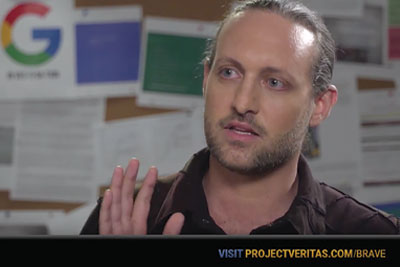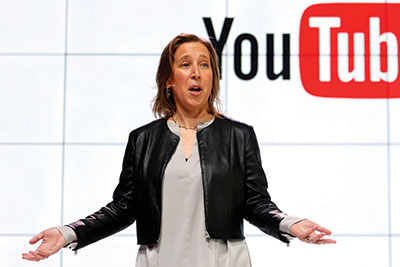Big Tech vs. Free Speech
On September 7, nine days after being injected with the Johnson & Johnson COVID-19 vaccine so that she could serve as a “room mom” in her daughter’s classroom, Seattle resident Jessica Wilson, 37, died of vaccine-induced immune thrombotic thrombocytopenia.
Her obituary, published by the Oregonian, minced no words, referring to “heavy-handed vaccine mandates” that “slowly, day by day,” took away “her freedom to choose.” In order to continue to “be actively involved in her children’s education,” she was forced to accept an inoculation to which she was “vehemently opposed.”
“Ultimately, those who closed doors and separated mothers from their children prevailed,” the obituary declared. “It cost Jessica her life. It cost her children the loving embrace of their caring mother. And it cost her husband the sacred love of his devoted wife.”
Wilson’s death notice soon showed up on Twitter, posted by people who found it both heart-rending and fiercely honest. Shortly thereafter, “Twitter fact-checkers put a ‘misleading’ label on Jessica’s obituary and prevented people from replying to, sharing or liking the tweet,” reported Children’s Health Defense (CHD). Wilson’s uncle, Thomas Ivancie, told the group he had “also received reports that Facebook was censoring Jessica’s obituary.”
“Ivancie,” CHD added, “said it feels like a second death — a death of the truth at the hands of these massive powerful entities. ‘Imagine if we had a free and open exchange of truth, how this could change the narrative for others,’ Ivancie said.”
Truth Decay
“A free and open exchange of truth.” Once one of the hallmarks of Western civilization, it is now increasingly under attack from a radicalized Left bent on quashing all dissent.
In the pre-Internet era, this might have been accomplished by burning books, smashing printing presses, and arresting those daring to say publicly that the emperor is buck naked.
Today, however, technology giants such as Google, Facebook, and Twitter have effective, high-tech means — often subtle, occasionally blatant — of silencing those who challenge the received wisdom, including journalists, scientists, and even a sitting president of the United States.
The process of deciding which articles, social-media posts, videos, and other electronic media to retain, delete, promote, and so on is known as content moderation. Practically every electronic platform engages in it to one degree or another, sometimes for good and sometimes for ill.
“Not all moderation is bad,” David Greene, civil liberties director at the San Francisco-based Electronic Frontier Foundation (EFF), said in an interview with The New American. A conservative website is likely to prohibit users from posting articles favoring socialism. A website devoted to knitting will probably take down posts about weightlifting. Most respectable sites will try to remove content that is obscene or threatens others with violence.
The problem, of course, is that every decision about content is subjective. What one person views as a reasonable decision, another considers unacceptable.
The issue is magnified by the fact that moderation decisions are often shrouded in secrecy. Google, for example, maintains secret blacklists of content that may not be included in its news feeds or shown in YouTube videos. Facebook, YouTube, and Twitter frequently take down content or ban users entirely with, at best, a message saying their content has run afoul of the platforms’ terms of service. Appealing such decisions is cumbersome, time-consuming, and frequently futile.
Although many of the high-profile examples of Big Tech censorship involve conservatives, according to Greene, research shows that conservatives aren’t disproportionately censored on the Internet. Even if that is true, the Internet is one of the few ways conservatives have of reaching a large number of people. If a liberal is squelched on one platform, he still has the mainstream media, Hollywood, numerous other platforms, and powerful politicians and activists to spread his message. If a conservative or libertarian is censored on Facebook, he will have to work many times harder to connect with his audience.
Google’s Great Awokening
Every conversation liberals had with their friends and coworkers, all the polls they saw, and every news report they read prior to Election Day suggested that Trump would lose in 2016. But they hadn’t reckoned with Trump’s ability to circumvent the traditional channels and appeal directly to voters via social media.
“I think that Trump was a direct result of” the “bottom-up social-media system,” former Google employee Zach Vorhies told The New American. “I think it caught the network of global corporate control off-guard.”
When Google, whose unofficial motto for many years was “Don’t be evil,” held an “all-hands” meeting the week after the election to bemoan the outcome and discuss how to prevent a recurrence of it, Vor-hies, a self-identified liberal, immediately recognized the danger and began poking around internal company files to discover just how Google planned to stop Trump.
He first found that the company was already in the process of using machine learning, a type of artificial intelligence, to identify and suppress so-called fake news, which just happened to be news that was either helpful to Trump or harmful to Democrats.
“Once I saw that they were using machine learning to remove the fake news, I was like, ‘Huh, that kind of seems un-Googly. What is going on here?’” he recalled. “And so I started to dig in.”

Zach attack: Big Tech is trying to create a “technocracy” with “wicked ideas,” said Google whistleblower Zach Vorhies. “We’ve got to give humanity one last fighting chance to stop this thing.” (Photo credit: https://www.projectveritas.com/news/zach-vorhies-google/)
He eventually uncovered “a real censorship engine” called “Machine Learning Fairness” (MLF), which he described as “the fusion of artificial intelligence and Critical Race Theory.” Instead of simply aggregating data from the Internet, MLF would alter it to fit the “woke” view of how the world should be, such as by changing the results of an image search to present fewer white or male humans.
Google has a variety of other ways to surreptitiously affect people’s perceptions. One of them is its PageRank score, which determines how high in the list a particular Web page will be displayed when it occurs among the results of a user’s search. Google keeps its PageRank algorithm practically under lock and key, but according to Vorhies, among the factors it considers are the mainstream media’s and Wikipedia’s opinions of the page. Given the leftward bias of both of those sources, it’s hardly surprising that pages parroting the liberal line tend to appear at the top of the list.
Google’s autocomplete prediction searches, the terms its search engine suggests when a user begins typing in a query, also nudge people in the direction the company wants them to go. For example, as of this writing, typing “women can” in a Google search box yields suggestions such as “women can be drafted” and “women can do anything.” Searching for “men can,” on the other hand, returns such potential queries as “men can get pregnant,” “men can lactate,” and “men can have periods.”
Vorhies got so fed up with what he called “the most evil company on the face and history of the planet” that he became a Project Veritas undercover reporter, gathering documents and hidden-camera recordings to prove what Google was up to, and ultimately left the company in 2019. Then he co-wrote a book, Google Leaks: A Whistleblower’s Exposé of Big Tech Censorship, that was published this summer.
Facebook Fiends
Ryan Hartwig, who worked as a content moderator for a Facebook contractor from 2018 to 2020, and who became a Project Veritas reporter and co-author, agrees that the social-media giant is heavily biased against conservatives in general and Trump in particular, deleting otherwise acceptable right-wing posts while granting exceptions to left-wing posts that clearly violate the rules.
“Their policies mirrored the media’s slant on Trump after he was elected that basically he’s a racist and anything that comes out of his mouth is going to be racist,” Hartwig told The New American, “so anytime Trump was going to give a speech, Facebook literally told us to look for hate speech.”

Ryan’s hope: Former Facebook contractor Ryan Hartwig said he felt it was his “civic duty” to blow the whistle on the company’s censorship. People “need to wake up and fight back right now, or else we’re going to lose all of our liberties,” he declared. (Photo credit: https://ryanhartwig.org/timeline/)
That was especially true when it came to Trump’s stance on illegal immigration, which Facebook opposed 100 percent, Hartwig explained in his book Behind the Mask of Facebook: A Whistleblower’s Shocking Story of Big Tech Bias and Censorship. The company issued a long list of things that could not be said of illegals, including that they should be deported or denied access to taxpayer-funded entitlements. It even went so far as to declare Central Americans a protected class about which practically nothing negative could be posted. And while Facebook doesn’t allow human smugglers to advertise for clients, it does permit people to seek guidance on how to enter a country illegally.
Facebook allowed threats of violence against people on the outs with the Left, and not just in America, said Hartwig. It changed its policy about death threats against heads of state to allow depictions of Trump’s throat being slashed, and for three months in 2019 and 2020, it permitted the phrase “Death to [Supreme Leader Ali] Khamenei” as a means of protesting high fuel prices in Iran.
(See the review of Google Leaks and Behind the Mask of Facebook on page 17 for further details on these companies’ censorship programs.)
Rushin’ Election Interference
During the 2018 U.S. midterms, under the guise of preventing a repeat of the alleged 2016 election interference by Russia, Facebook poured significant resources into ensuring that Democrats prevailed, including asking content moderators to keep the company updated on election-related trends, which, Hartwig wrote, made moderators akin to “informers in a totalitarian state.” But that was just a warm-up for the main event in 2020, when, he stated, “they totally redesigned … the way that jobs came into our queue” for review of posts.
The company created a new “Civic Harassment” policy that was meant to protect public figures from what Facebook considered unfair criticism. Hartwig said part of the change was to prevent mocking of public figures’ health problems, which he thinks Facebook could be employing to suppress reports of President Joe Biden’s seeming cognitive difficulties.
That’s certainly plausible given that Big Tech’s censorship engines were going full tilt to guarantee that Biden won the election.
“By the time 2020 rolled around, Google’s entire search engine had been weaponized against Donald Trump and Facebook weaponized against Donald Trump and YouTube weaponized against Donald Trump,” charged Vorhies.
Big Tech’s most notorious intervention in the election was its spiking of the Hun-ter Biden laptop story. In mid-October, the New York Post published two articles making the case that then-candidate Joe Biden and his family were engaged in some serious — and seriously lucrative — chicanery in Ukraine and China. The articles were based on documents obtained from a laptop computer Joe Biden’s son, Hunter, left at a repair shop and never picked up.
“From the start,” observed journalist Glenn Greenwald, “the evidence of authenticity was overwhelming.” Yet when a group of former intelligence officials issued a public statement insinuating that e-mails found on the laptop were Russian disinformation — even though they admitted they did “not have evidence of Russian involvement” — Big Tech immediately made an all-out effort to prevent the articles’ dissemination. Twitter prohibited all discussion of the story, including posting links to the articles. Facebook, meanwhile, announced that it would proactively suppress all mentions of the story pending a “fact check” whose results — or even existence — it still refuses to disclose.
As if that weren’t enough, after the January 6 Capitol riot, every major platform — Facebook, Twitter, YouTube, and Snapchat — banished Trump, either permanently or for an extended period, supposedly for inciting violence. NBC News accurately labeled the incident “a landmark moment for America’s social media giants and the most visible demonstration yet of their absolute power.”
Censorship Goes Viral
As far as Big Tech went to get rid of Trump, it has gone to even greater lengths to stamp out any dissent from the Anthony Fauci/Big Pharma line on COVID-19.
In April 2020, just a few months into the pandemic, YouTube CEO Susan Wojcicki stated on CNN’s Reliable Sources that YouTube would be taking down “anything that would go against World Health Organ-ization recommendations” and “anything that is medically unsubstantiated,” such as claims that vitamin C, which boosts the immune system, might help ward off COVID-19.
YouTube continued battling COVID-skeptical content on a piecemeal basis thereafter, and eventually made it a policy to delete videos containing alleged misinformation related to the mRNA vaccines.
Then, in September 2021, it announced a change to its medical misinformation policy. Henceforth, “content that falsely alleges that approved vaccines are dangerous and cause chronic health effects, claims that vaccines do not reduce transmission or contraction of disease, or contains misinformation on the substances contained in vaccines will be removed.” That goes for all vaccines, not just the COVID-19 ones.
Within hours of announcing the policy change, YouTube banned and deleted the channels of various vaccine skeptics, including Dr. Joseph Mercola, Dr. Sherri Tenpenny, and CHD.
In a subsequent article, Mercola claimed that YouTube changed its policy specifically to silence him and other vaccine critics who had managed to stay within the platform’s previous guidelines. “Going forward,” he wrote, “being compliant is not enough — you must be predictively compliant and ensure your videos don’t violate some future policy that may be dreamt up in a moment without notice.”
Facebook did its part to suppress content questioning official pronouncements on COVID-19, too. Besides slapping “misinformation” labels on unapproved opinions and links to official sources on every virus-related post, the platform also censored posts positing that the virus had originated in a laboratory in Wuhan, China, primarily on the basis of a letter from “27 eminent public health experts” to the British medical journal The Lancet condemning “conspiracy theories suggesting that COVID-19 does not have a natural origin.” After the letter was revealed to have been composed by self-interested scientists and the lab-leak theory gained currency among the mainstream media, Facebook stopped blocking posts on the subject.
Facebook has also been busy expunging content questioning the efficacy and safety of the vaccines. This was relatively easy for the company given that it had previously enacted a policy prohibiting posts questioning baby vaccines. Screen shots of internal Web pages provided to The New American by Hartwig show that in 2019, Facebook was already deleting content that made statements such as “Vaccines are not effective in preventing the disease against which they purport to protect,” or that came from groups with negative opinions of vaccines.
Twitter got into the act, too, most infamously by permanently ousting former New York Times reporter Alex Berenson for posting a series of tweets highlighting an Israeli study showing that natural immunity to COVID-19 is vastly more effective than the vaccines. In a December Wall Street Journal op-ed, Berenson claimed he had also battled Amazon, which tried to suppress two self-published booklets he wrote about the virus and the response to it.
Buying Silence
Big Tech has also taken to hitting those who don’t toe the Fauci line where it hurts the most: in their pocketbooks.
Ernest Ramirez, a Texas man whose 16-year-old son died of an enlarged heart just days after getting a COVID-19 vaccine, started a fundraiser on GoFundMe to enable him to travel to Washington to tell his son’s story there. GoFundMe shut it down and refunded the money that had already been donated because, it said, Ramirez had engaged in “prohibited conduct.” Apparently, using GoFundMe to pay for your abortion is A-OK, but using it to speak out against the COVID regime is beyond the pale.
LewRockwell.com (LRC), one of the oldest and most popular libertarian websites, was informed in early October that Google was cutting off its revenue from Google ads appearing on LRC, which Rockwell said was “substantial.” Their excuse: LRC was spreading “misinformation” and “harmful health claims” and “undermin[ing] participation or trust in electoral or democratic processes.”
It should also come as no surprise that The New American and its parent organization, The John Birch Society, have come under attack from Big Tech. YouTube has issued warnings to TNA about its content, and in September it removed a non-public JBS video on vaccine mandates for violating its medical misinformation policy. Earlier this year, Facebook restricted the reach of both the JBS and TNA pages, causing a 95-percent decline in the reach of the TNA Facebook page. And while neither the JBS nor TNA Twitter account has received any official restriction notices, it is likely that the platform has shadowbanned both: While each page has over 10,000 followers, most posts attract only a handful of actions.
Free Speech’s Trump Card?
With the forces of Big Tech, the media, and government against them, what can individuals do to fight back?
Some, such as Trump, are following the tried-and-true American approach of suing. Trump is the lead plaintiff in a class-action lawsuit that seeks “damages to deter such behavior in the future and injunctions restoring my accounts,” the former president wrote in a July 8 Wall Street Journal op-ed.
“Our lawsuits,” explained Trump, “argue that Big Tech companies are being used to impose illegal and unconstitutional government censorship.” He pointed to congressional Democrats’ browbeating of Big Tech CEOs to get them “to censor ‘false’ stories and ‘disinformation,’” and to the Trusted News Initiative, a Big Tech-corporate media agreement that “essentially takes orders from the CDC [Centers for Disease Control and Prevention] about what information they need to ‘combat.’”
Since Trump’s piece was published, it has come to light that the Biden administration is working with Facebook and other social-media platforms to combat COVID-19 “misinformation” by flagging posts with which the administration disagrees and boosting those it likes. Such a revelation could go a long way toward helping Trump’s case.
EFF’s Greene, however, doesn’t think Trump’s lawsuit, or any other complaint, is likely to succeed. “It’s pretty clearly established that the companies have First Amendment rights to edit and curate their sites the way they see fit,” he said. For the same reason, a federal judge issued an injunction against a Florida law that seeks to outlaw Big Tech censorship.
That line of reasoning assumes, of course, that these companies really are private entities. That same amendment, after all, bars government entities from editing and curating people’s speech.

Left jab: Big Tech has done its utmost to squelch any criticism of mRNA vaccines and vaccine mandates, even going so far as kicking users off platforms for violating ex post facto rules. (Photo credit: Pyrosky/E+/GettyImagesPlus)
At first glance, the tech giants would appear to be wholly private enterprises — they certainly reap enormous profits — who only occasionally bow to government pressure. In reality, though, many of them have extensive ties to the U.S. intelligence community. The technology behind Google, for instance, was secretly funded by the Central Intelligence Agency (CIA) and National Security Agency (NSA), and Google continues to cooperate with these agencies. Many other technology companies have also received funding through the CIA’s venture-capital firm, In-Q-Tel. Big Tech is known to be highly responsive to government requests for information and content removal, and why not? Thanks to 2015’s Cybersecurity Information Sharing Act, no matter how much they spy on and censor their users, they are virtually immune from lawsuits alleging illegal surveillance as long as they share their users’ data with the government. Thus, it would hardly be a stretch to assert, as Trump does, that the companies are acting as de facto government agencies and therefore should be held to the same constitutional standards as de jure ones.
If the courts don’t do anything about Big Tech, perhaps Congress will. Many people concerned about online censorship, Trump included, have called for repealing Section 230 of the Communications Decency Act of 1996, which “provides immunity to online platforms from civil liability based on third-party content and/or for the removal of content in certain circumstances,” according to ZeroHedge. The argument is that the tech giants are hiding behind Section 230 to take down content they don’t like, so repealing it would force them to leave everything up.
Greene disagrees. “If you’re someone who thinks … that too much is taken down, then you don’t want them changing Section 230,” he maintained. While repeal might or might not prevent Facebook or Twitter from censoring conservative content, it would definitely drive many smaller platforms out of business because they couldn’t afford the army of lawyers necessary to defend against claims that they had failed to block pornography, obscenity, or violent threats.
Capital Ideas
Indeed, Big Tech’s deep pockets mean it will fight tooth and nail to prevent any legal or regulatory attacks on its prerogatives. The one thing it cannot fight, however, is the free market, which might just be what does it in.
For starters, users, without whom these companies could not exist, have the ability to exert various types of pressure on them. They could demand that platforms provide clearer explanations of why content is deleted or accounts are disabled, and develop timely, meaningful appeals processes. They could also patronize those platforms that let users decide for themselves which content they want to see.
Furthermore, users could push platforms to open up their application programming interfaces (APIs) to competing services so that users could take advantage of the data and services provided by the host platforms while bypassing features they dislike. Of course, since this would also blunt a platform’s competitive edge, it is not likely to happen, but enterprising coders can find some ways around the problem. Vorhies, for one, is nearing completion of a service that will aggregate video content from across the Internet and present it to a user in much the same way that YouTube recommends its own videos to users.
Another market approach to the problem of Big Tech censorship is to create competing platforms. However, there are a number of barriers to accomplishing this, as EFF’s Cory Doctorow detailed in a July article:
Setting up your own rival platform requires that you get cloud services, anti-DDoS, domain registration and DNS, payment processing and other essential infrastructure. Unfortunately, every one of these sectors has grown increasingly concentrated, and with just a handful of companies dominating every layer of the stack, there are plenty of weak links in the chain and if just one breaks, your service is at risk.
The other major barrier to starting a competing platform is getting people to switch to it, wrote Doctorow:
Setting up your own service might get you a more nuanced and welcoming moderation environment, but it’s not going to do you much good if your people aren’t willing to give up access to all their friends, customers and communities by quitting Facebook and joining your nascent alternative, not least because there’s a limit to how many services you can be active on.
Parler, Gab, and other alternative platforms have sprung up, but because they are separate and specialized, it will take them a long time to reach the popularity of the behemoths. Big Tech, in turn, will do everything it can to prevent them from becoming a threat, as witness Amazon’s de-platforming of Parler in January.
Seeing this, others are taking a more comprehensive approach to the problem by building not just individual platforms but “a second internet,” as Christopher Bedford recently wrote in the Federalist.
Bedford is the chief communications officer of RightForge, one of the companies that seeks to dethrone Big Tech by creating “an internet where people of all politics and religions can communicate, interact, and conduct commerce free from arbitrary power,” he explained.
“The most powerful insiders in the world have turned on the American people and the heritage of liberty we cherish, proudly taking aim at our open society,” he declared. “The only choice remaining is to create an alternative; if we don’t forge our own path free from their control, this night we’ve entered will only grow darker — and longer.”
Billionaire Frank McCourt, former owner of the Los Angeles Dodgers, is also trying his hand at slaying the Big Tech dragon via an initiative called Project Liberty. McCourt is investing $100 million in a decentralized, blockchain-based “civic architecture” for the Internet, starting with social-media applications that allow users to own their data and take it with them if they switch to other platforms.

Viral video: In spring 2020, YouTube CEO Susan Wojcicki publicly announced her intention to delete content dissenting from the official line on COVID-19. (Photo credit: AP Images)
But the most famous attempt by far to create an alternative Internet comes from Big Tech’s most well-known adversary: Trump. In October, the former president announced that his Trump Media & Technology Group (TMTG), which went public with an initial enterprise value of $875 million, would shortly be launching a social network called TRUTH Social. And that’s just the beginning: TMTG also plans to create streaming services with “non-woke” entertainment and news and, in the long term, to establish TMTG Tech Stack, which will rival Amazon Web Services, Google Cloud, and other cloud-computing platforms.
“I created TRUTH Social and TMTG to stand up to the tyranny of Big Tech,” Trump said in a press release. “We live in a world where the Taliban has a huge presence on Twitter, yet your favorite American President has been silenced. This is unacceptable.”
“Everyone asks me why doesn’t someone stand up to Big Tech?” he added. “Well, we will be soon!”
Big Tech Is Beatable
Will any of these market-based alternatives succeed in rescuing us from Big Tech? It’s certainly possible. Twitter rescinded its restrictions on Jessica Wilson’s obituary after a public outcry. The JBS and TNA implemented alternative strategies such as joining other platforms and advertising on radio. Now, according to JBS Communications Director Paul Dragu, “JBS membership and TNA subscriptions have been rising at a rate not seen in many years.” There is no reason to think Big Tech cannot be beaten at its own game.
“The tech geeks that are able to integrate well with computers don’t understand that they have the power to change the world,” said Vorhies. “There are people out there that have the skill and have the drive and have the obsession to free the world from Big Tech’s tyranny, and I hope to set an example that one person can change the world. And if there’s a person out there that can [help], then let’s work together to make the world a better place.”
Michael Tennant is a freelance writer and regular contributor to The New American.



